News
Last CHG Powder River Tour held on Saturday
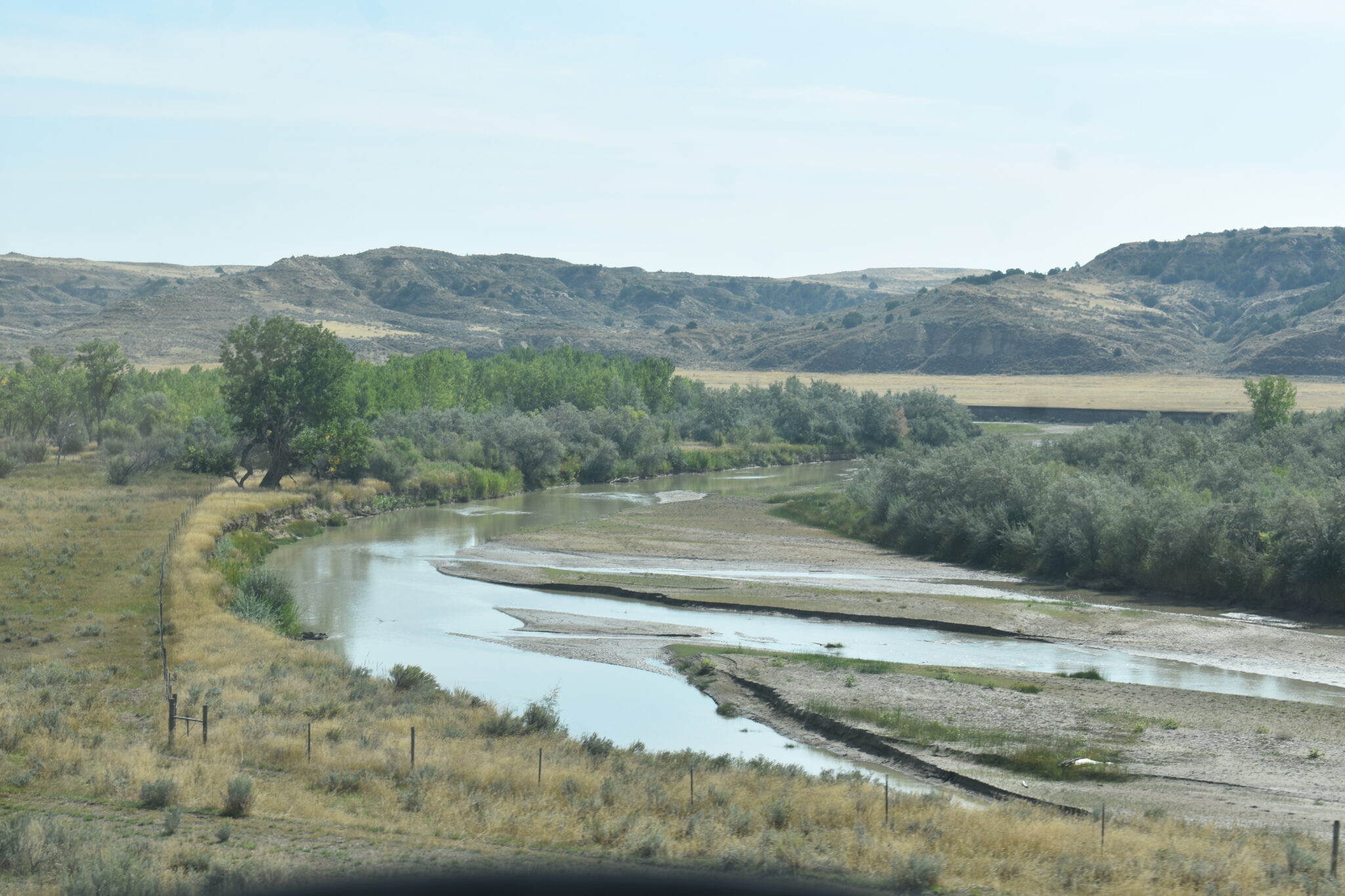
The last Clearmont Historic Group Powder River Tour of the season was on September 17. Ira Roadifer talked about the history of the area from Clearmont to the Reynolds Battlefield Site near the old town of Moorhead, Montana. Ten people took the tour.
The tour left Clearmont and traveled south east on Thompson Creek Road, and then dropped down to the Crazy Woman Creek area. Roadifer talked about the homesteaders in the area, and some of the history of Crazy Woman Creek.
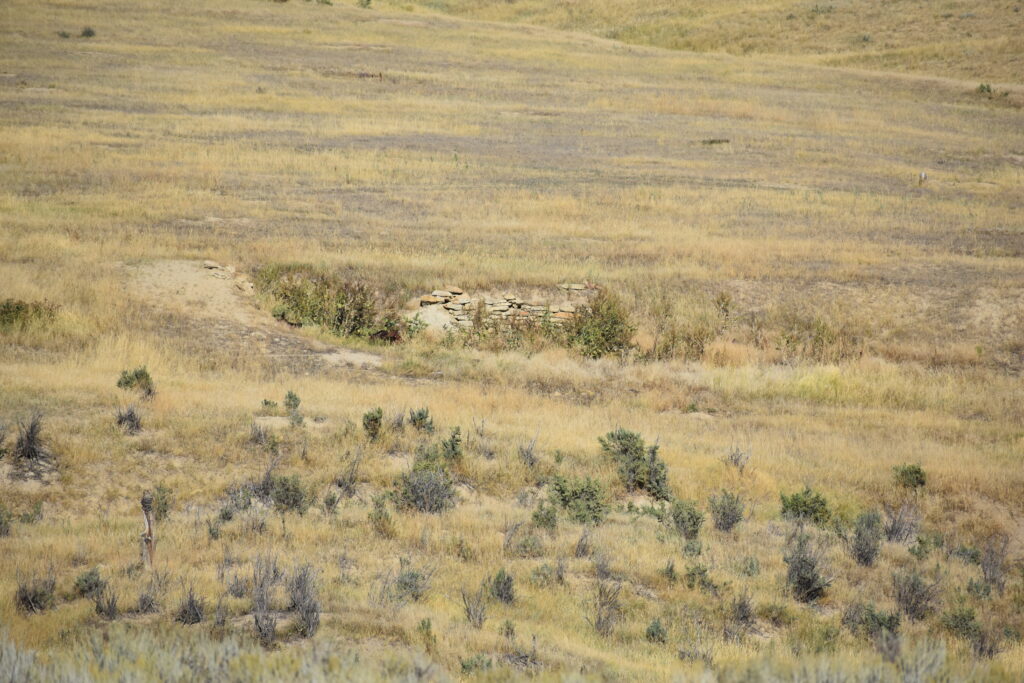
After traveling along Crazy Woman, the tour turned towards Arvada, where Roadifer talked about the history of the rail town of Suggs, forerunner of Arvada. In 1892, during the Johnson County War, a troop of the Buffalo Soldiers were called in from Fort Robinson, Nebraska, to help keep the peace. The troops arrived via the new railroad, and while there they created “Camp Bettens” despite a hostile local population.
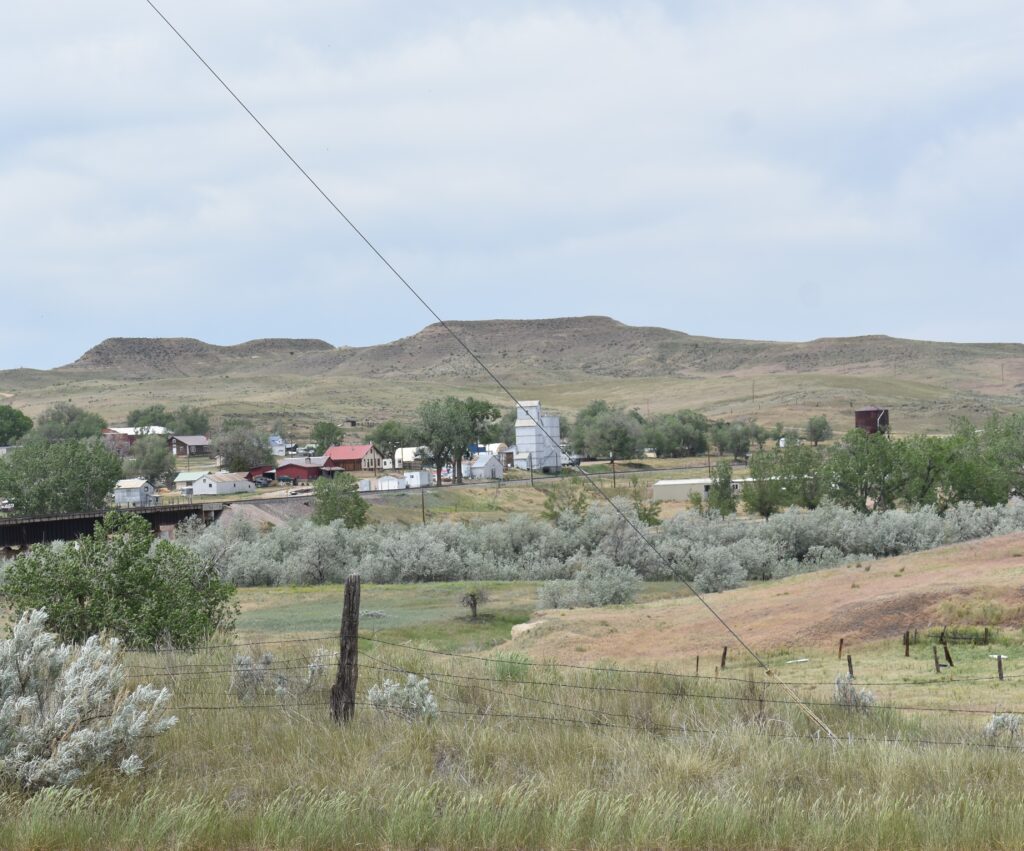
Trouble erupted between the town folk and the black soldiers on June 17, 1892. From a Newcastle News Journal June 24, 1892: Gillette, WY –Everything is quiet at Suggs tonight. Thus far two deaths have occurred from the recent affair. About 500 armed men have assembled in the town. The headquarters of the 9th cavalry have been transferred from Fort Robinson to Camp Betten. More trouble Is anticipated. Phil. DuFran has been missing for three days. DuFran was a US Marshall who was acting as a guide for the soldiers, was known and hated by the area outlaws due to his involvement in the Johnson County War.
Suggs was never intended to be a permanent settlement, and when that section of the railroad was completed, the town died.
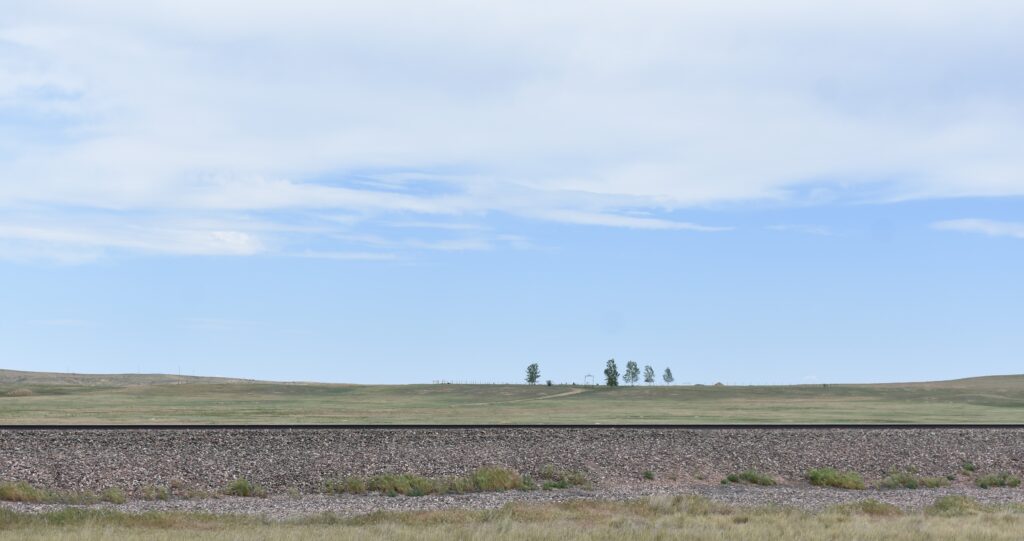
From Arvada, the tour took the Lower Powder River Road towards Brodus, Montana. One of the stops was to look at some of the buildings from some of John B. Kendrick’s ranch holdings along the Powder River, and to hear about the building of his ranches.
At one time Kendrick owned several ranches in Sheridan and Campbell country and southeastern Montana, many along the Powder River. He was also a Wyoming Governor and a Wyoming State Senator.
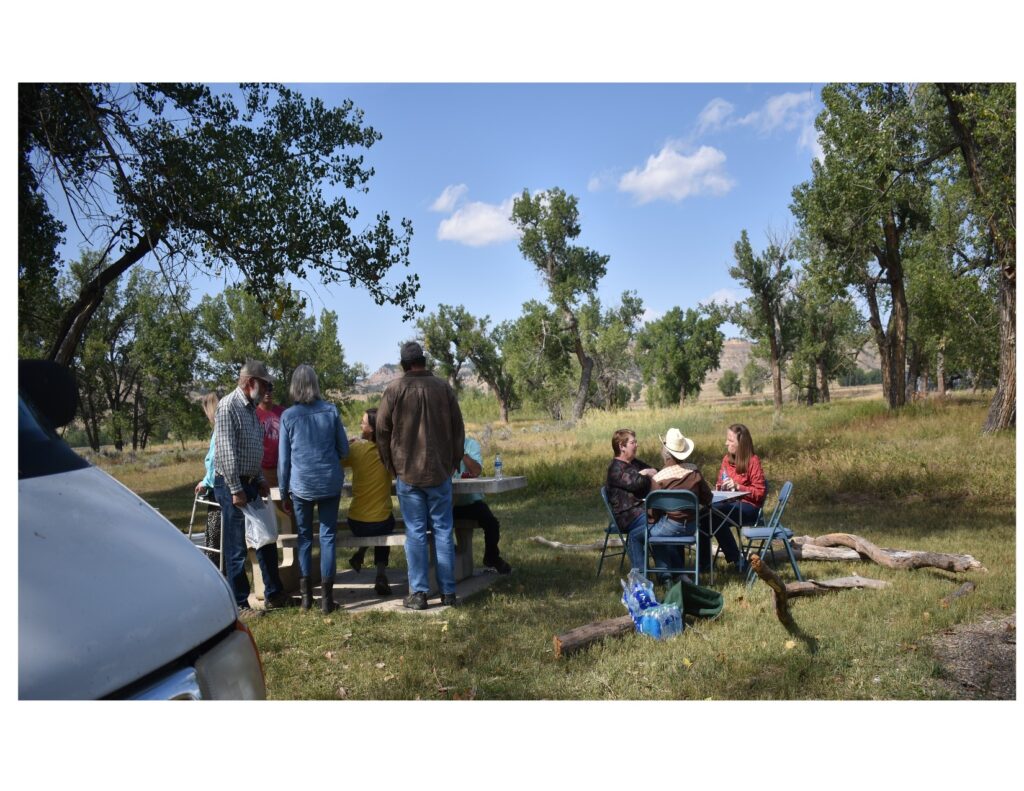
The tour proceeded on the Moorhead Recreation Site, where a buffet sandwich lunch was served.
From Moorhead it was a short drive to the site of the Reynolds Battle, also called The Battle of the Powder River, which occurred in March of 1876, and part of Crook’s Powder River Expedition. Reynolds was harshly criticized for his leadership during the battle.
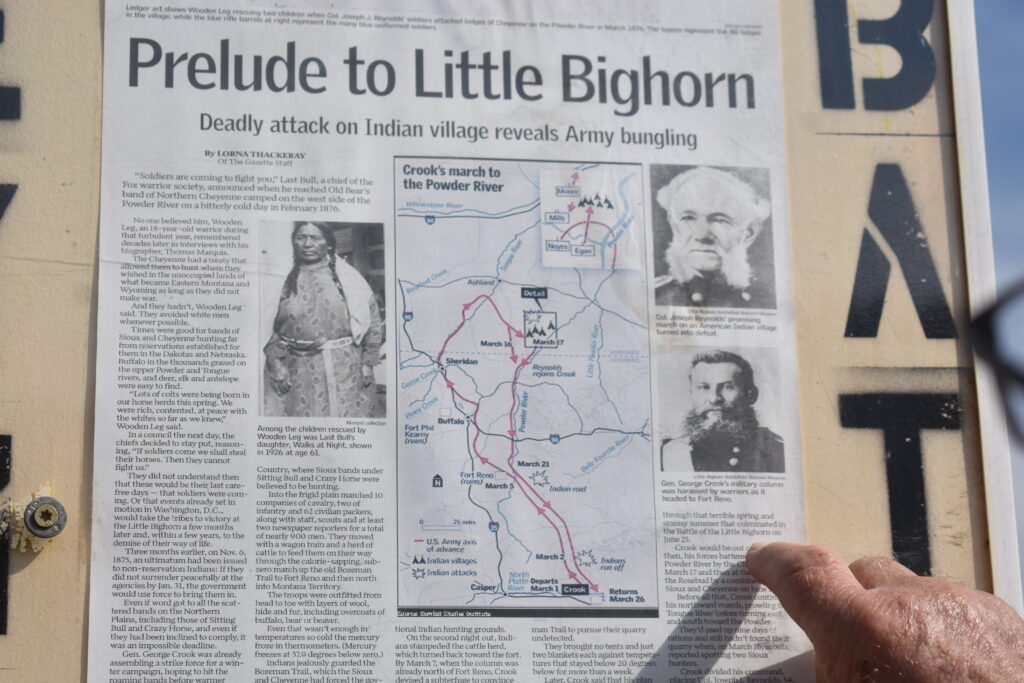
According to according to the Cheyenne Weekly Leader, April 12, 1877: Colonel Joseph J. Reynolds, Third Cavalry, was tried for “Disobedience to the lawful commands of his superior officer,” “violation of the Forty-second Article of War,” “conduct to the prejudice of good order and military discipline,” and “conduct unbecoming an officer and a gentleman,” have been reviewed by the War Department, with the following result: The specifications in support of the above charges allege that being ordered to join General Crook at Lodge Pole creek, M. T., March 18, 1876, Colonel Reynolds marched his troops away, intending to prevent a junction; that he destroyed property captured from the Indians when he was ordered to save it; that he misbehaved before the enemy, ran away with his command and left his killed and wounded in the hands of the Indians; that having captured a large herd of ponies and mules he permitted the Indians to recapture 700 of them and made no effort to retake them, thus defeating any further operations at the time against said Indians; that he detached a company to charge the enemy and failed and neglected to support it, and that, having preferred charges against Captain Henry E. Noyes, Second Cavalry, he solemnly declared that he was not the accuser or prosecutor of said Noyes.
In view, however, of the long, distinguished and faithful services of Colonel Reynolds, President Grant remitted the sentence.
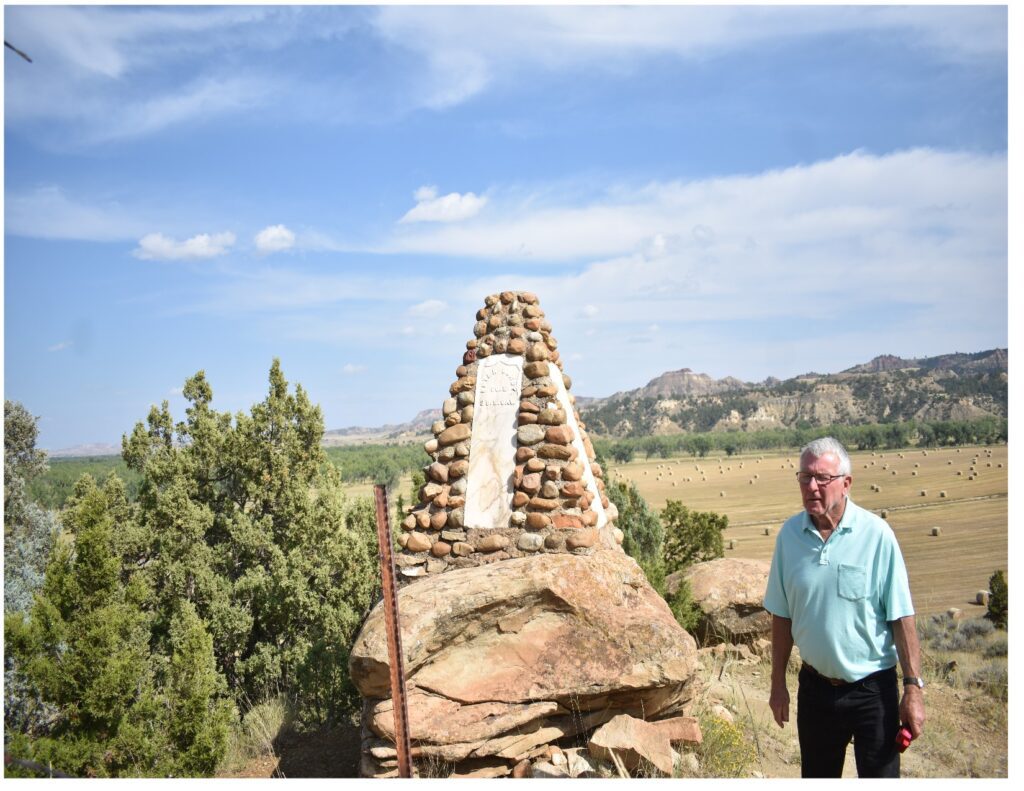
Today there is a monument honoring the four soldiers that died at the battle, and that Reynolds abandoned to the Sioux.
After walking around the monument for a time, the group loaded up and headed back to Clearmont. The Clearmont Historic Group would like to thank all those who participated in the tours, and thanks to the Clearmont Community Church for the use of their van for the tour.


Ira roadifer
September 20, 2022 at 7:04 am
Thank you for story on our POWDER RIVER TOUR. I enjoy putting these tours together for thr Clearmont History Group.